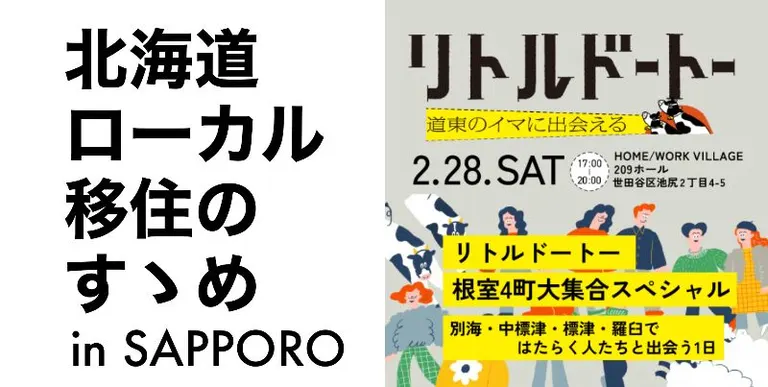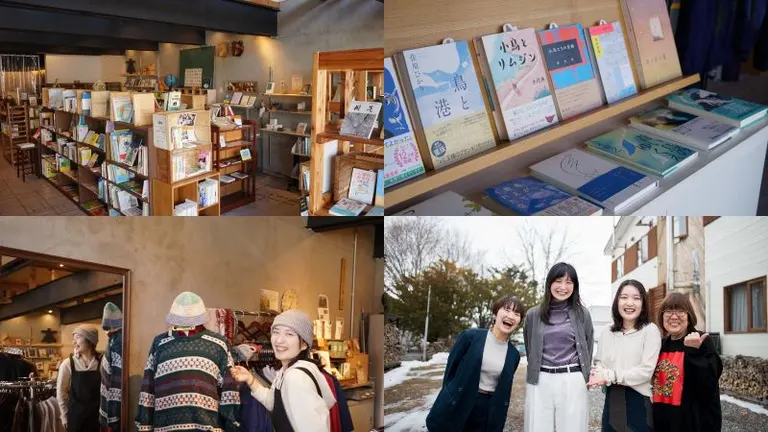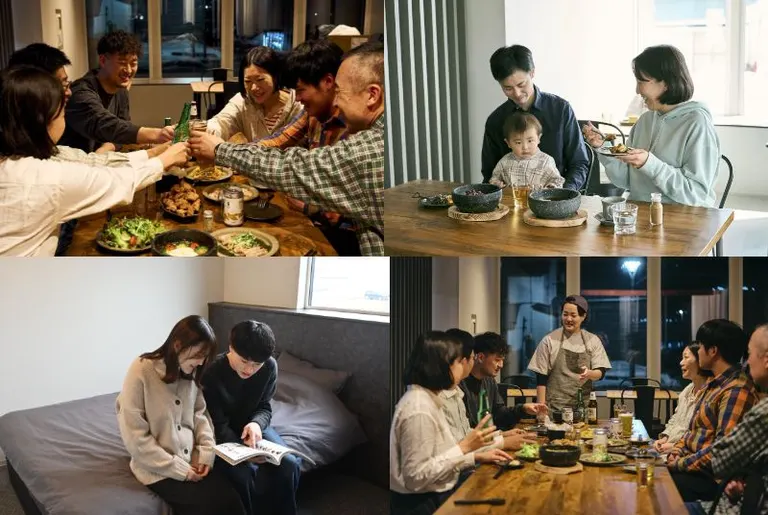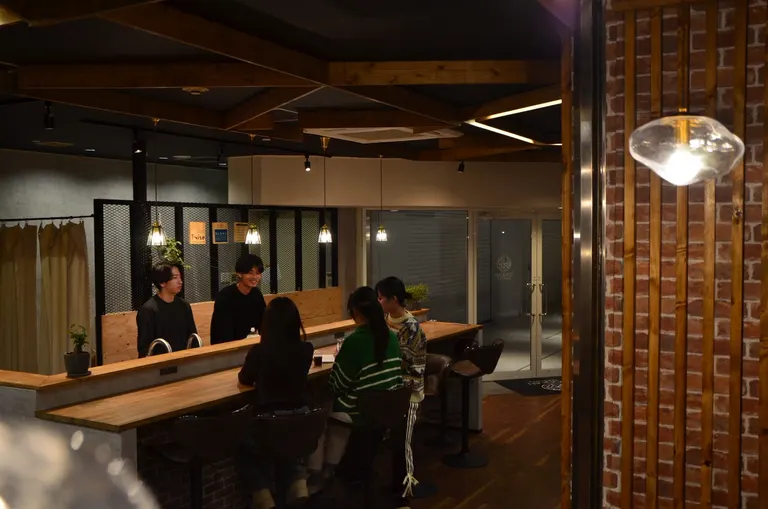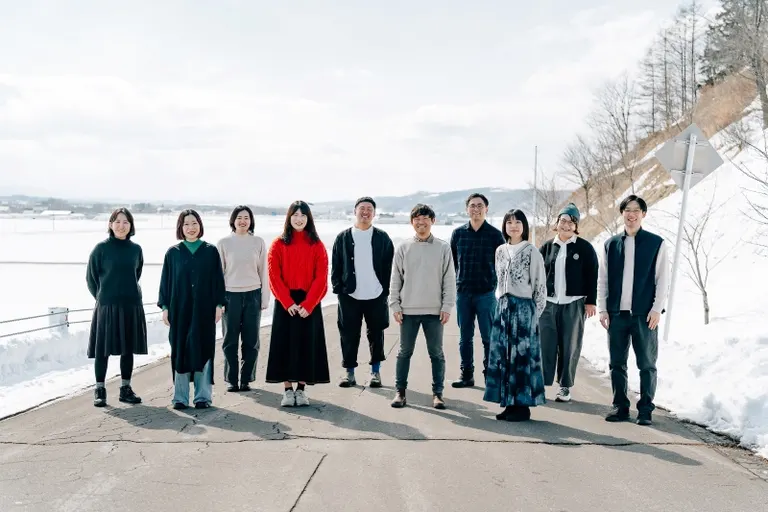
ARTICLES
We want to be conscious of the blessings from our region. The 'Local Secretariat' role that Dot Dōtō arrived at upon its 5th anniversary.
Room to Discover Your Strengths, Even Without Experience

'.doto', published in June 2020
――The '.doto' guidebook, created as the "unofficial guide to Doto," raised 3.4 million yen through crowdfunding and won the Grand Prize in the Regional Revitalization Category at the Japan Regional Content Awards. It generated a lot of buzz, didn't it?
Nakanishi: We created '.doto' as a culmination of everything each member had been doing in Okhotsk, Tokachi, and Kushiro. We thought that by presenting the relationships we've built in the region in the form of an unofficial guidebook, people could get to know us and our organization, .doto.
For the crowdfunding to raise production costs, 48 people supported us with the "Help with Production" reward. As a result, it became a book created not just by us, but by everyone. This initiative was covered by many media outlets, including TV, and our activities expanded rapidly.
――Was that what you were aiming for?
Nakanishi: We hoped it would turn out that way, but the reality exceeded our imagination. With the Doto Invitation Project, our thinking was simply, "If interesting people come and meet other interesting people, something interesting will happen." More than defining its significance, we felt the most important thing was to take our guests around and have them meet the people of Doto. We thought it would serve as our introduction. The guidebook was the same; we created it hoping it would be a chance for people to get to know the people we like and to form new connections.
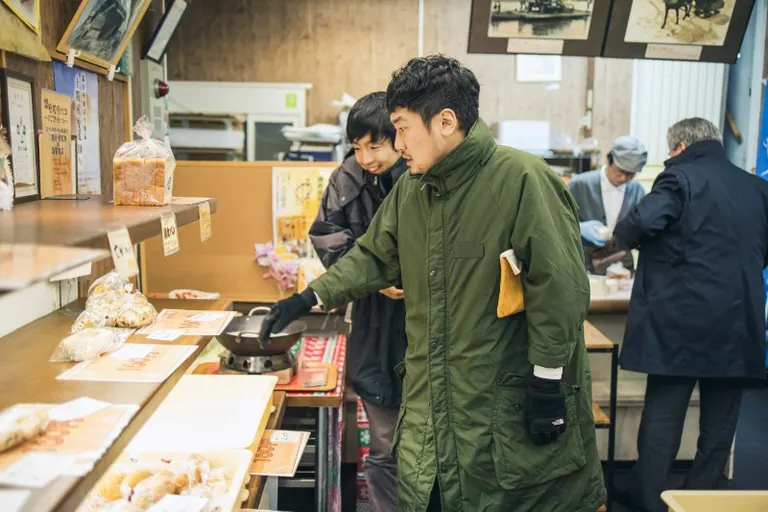
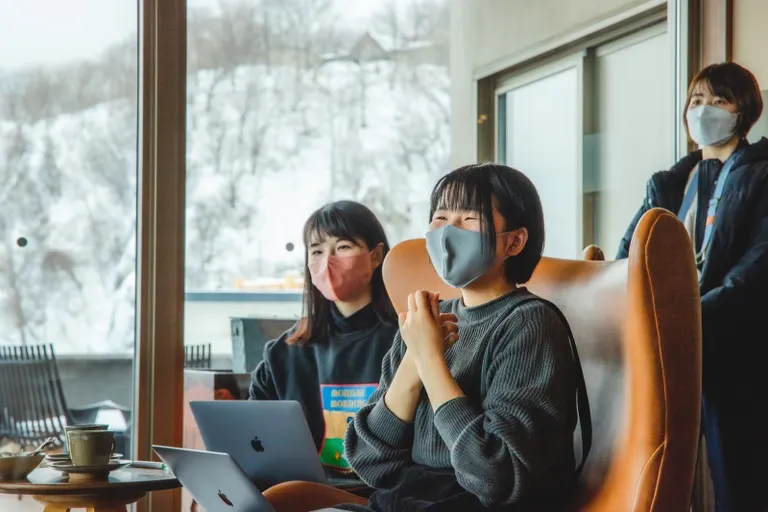
Behind the scenes of the '.doto' interviews
Nozawa: For the first two years after joining .doto, I constantly wondered if I really belonged. I had no experience in what you'd call 'creative' work, so I didn't know what I could contribute.
When they asked me to "conduct an interview," I didn't know what to ask. I was in a state of "How do you even do direction?" Unlike Takuro, who had experience making magazines, I had no creative track record, and I was always thinking, "What is my value here?"
――So you struggled to find your place in an organization with a lot of creative work.
Nozawa: Exactly. So, I took on all the tasks that anyone could do but that others didn't have to, like handling bank transfers and shipping. I was trying to earn my place that way.
Nakanishi: Shige did express those anxieties, but no one around him thought that way. He was great at managing events, and at one point, he was even called "the project manager of Doto." I'm sure the people around him valued him much more than he thought.
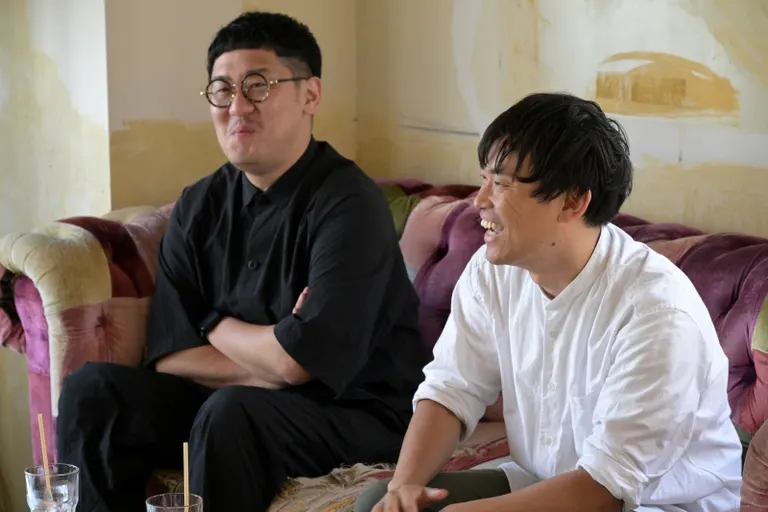
――How did you overcome that feeling of "Do I belong here?"
Nozawa: There wasn't one single big moment, but my feelings started to change as I gradually handled more projects that I could see through to completion myself. For example, helping companies with recruitment had similarities to my previous job, so I felt it was one of the few areas I was good at. As I started to see what I excelled at, the anxiety about whether I belonged disappeared.
Nakanishi: He just mentioned "taking on tasks anyone can do," but I think that's incredibly important. You're not a professional in that field, but you give it a try. When people around you acknowledge your efforts, it builds your confidence, and before you know it, you've carved out a position for yourself. There are many people involved with .doto who have realized their potential this way.
I think that would be difficult in a group of hardcore professionals, but because we have a DIY approach, there's room to try. In fact, we're looking for people who think, "I've never done it, but I'll give it a shot."
――Right, the guidebook wasn't made by gathering only magazine production professionals.
Nakanishi: Most of the people who supported us by helping with production had no experience making magazines. But when we asked for help with proofreading, some were incredibly good at it. When you've never done something, you don't know if you're good or bad at it, right? So you can't recognize it in yourself. But by trying, you might discover a talent, get recognized for it by others, and find an unexpected skill or position for yourself. I think this is a pretty important insight.
Even if you think "I can't do anything," by doing what you can, your value within the community increases. That kind of thing happens a lot within .doto.
――That's a phenomenon that likely arose because the organization is open and offers many opportunities for involvement, right?
Nakanishi: That's right. It's like there's a ton of open space, both in the land and in available roles. I think that's what makes Doto interesting.
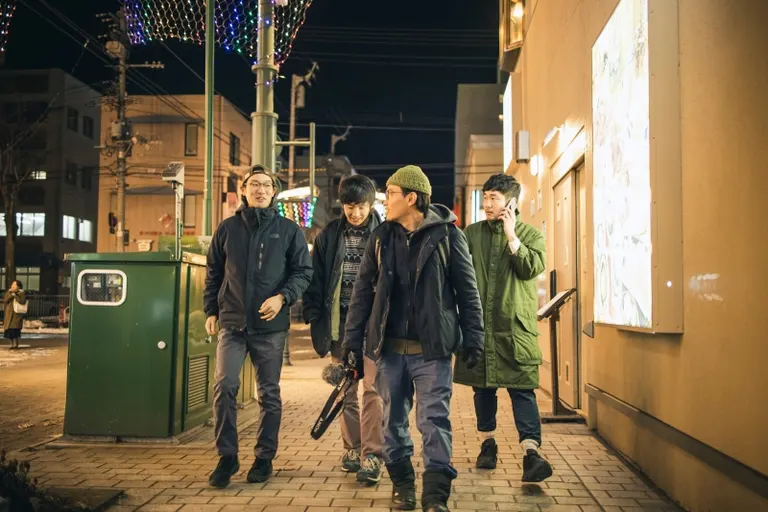
Behind the scenes of the '.doto' interviews
――.doto started with five people, and with some changes in members, you now have nine board members. How do you handle recruitment?
Nakanishi: It's more like referral-based hiring; people we're already connected with join us. It's not like we post a job opening for a specific role. For example, someone we met at an event who was helping us with social media as an intern might just become a board member.
Nozawa: It's less about recruiting and more like we're mutually approaching each other. Someone is interested in .doto, and we also want them to be involved.
Nakanishi: Of course, we need people to expand our business, but it's more than that. We want to create our livelihoods within our network of connections. I don't know if that's the 'right' way to run a company, though.
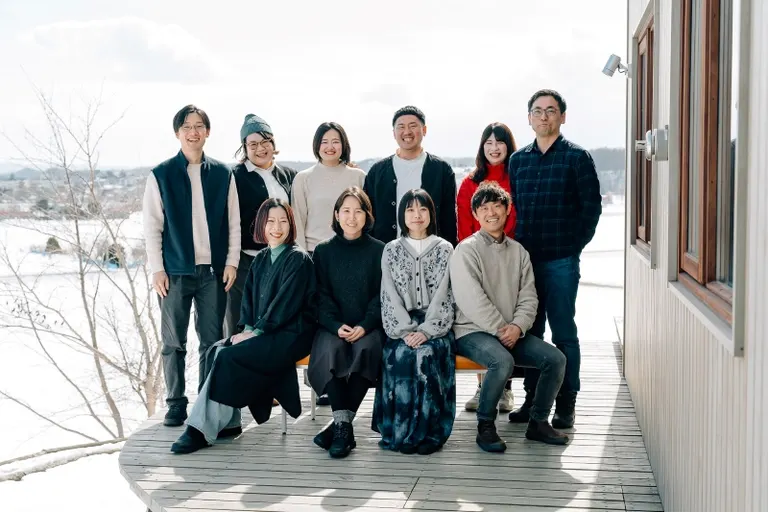
The current board members. Top row, from left: Teru Komatsu, Chiharu Yokoi, Arisa Kudo, Takuro Nakanishi, Kashiko Sudo, Takumi Yoshida. Bottom row, from left: Chihiro Nazuka, Ryu Takahashi, Yumi Kumagai, Issei Nozawa
――So it's not a case of "We want to achieve this, so let's find someone who can do it."
Nakanishi: .doto's vision is "To make Doto a place where ideals can be realized." If the members working here can't realize their own ideals, it would contradict the company's stance. The vision would become a lie. That's why we value pursuing our own ideals.
We started as a group of sole proprietors and shared the experience of "We couldn't do it alone, but by forming the organization .doto, we achieved more than we ever imagined." What was important then wasn't individual skills, but the fact that we gathered and cooperated. That's why we want the people who work with us to be people we can cooperate with to aim for our ideals, rather than choosing them based on skills or experience. Realizing each person's desires, or creating a region and culture where that's easier to do. That's what we do as a business.






